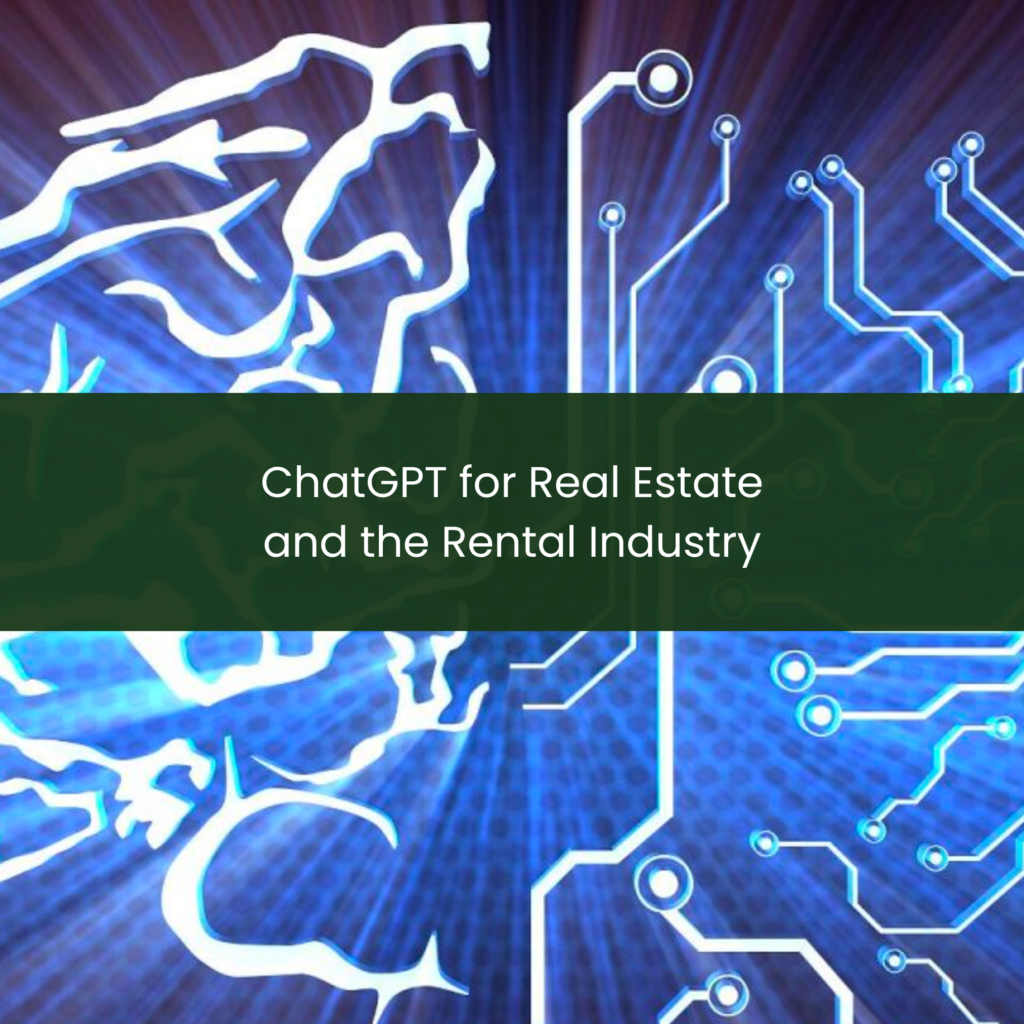It’s been hard to escape from trending online talks about ChatGPT. As AI is introduced to the public and tech experts highlight productivity benefits of AI technology across all industries, real estate experts have joined in the conversation.
There’s no doubt that landlords and property managers could benefit from some tech productivity hacks to make their day-to-day tasks easier. If you work in the real estate or rental industry, there are some important and helpful tips for using ChatGPT and other AI technologies.
What is ChatGPT?
ChatGPT is a language model developed by OpenAI. It is a machine-learning artificial intelligence that can answer questions in chat form. According to OpenAI, this dialog format allows it to generate a human-like reply to a large variety of questions or instructions as well as answer follow-up questions, admit mistakes or even challenge incorrect premises.
ChatGPT is capable of more than answering a simple question, however. Testers have been able to ask ChatGPT to debug or create simple code, write essays on particular topics, or create a meal plan using a suggested list of ingredients.
What other AI technology is available?
While it has taken the world by fire, critics in the tech industry have suggested that its technology is not as revolutionary as the public may believe. Whether that is the case or not, there are currently few options available for widespread use that seem as complex and comprehensive as what OpenAI offers. Microsoft has announced that its search engine Bing will utilize ChatGPT (the beta version is available to testers currently) and Google has announced its own version, Bard, will be available in the near future.
How landlords and property managers can use ChatGPT?
As a professional in the real estate and rental industry, you might be asking yourself what ways you can lighten your load and turn to the AI options available. Since working as a property manager or landlord can mean you have to wear many different hats, having a personal assistant ready to take on extra tasks can feel like a golden opportunity.
Landlords and managers certainly can use ChatGPT to speed up a few vital daily tasks, but there are some tasks that will always require an expert and human touch.
Great wats that Real Estate professionals and landlords can use ChatGPT:
- Assist with listing descriptions
- Craft emails and newsletters
- Create quick captions for social media posts
- Get content and script ideas for short videos on Youtube and social media
- Gather blog or website content ideas and inspiration
- Reword cumbersome language for text or email communications with clients or tenants
Best practices when using ChatGPT for Real Estate or rental needs:
Because Chatbots tend to infer information based on common language combinations, your prompt can initiate a response that generates additional information.
Notice that in the first prompt requesting a listing description, there was no mention of “stainless steel appliances.” However, most owners who decide to upgrade to marble countertops would likely update their appliances as well, and most listings that ChatGPT saw in its dataset likely mentioned both.
This means you may have to regenerate a new response or clarify and restate your prompt altogether. Either way, it’s vital that landlords and property managers scrutinize and edit the information given before sending out any official tenant communications or public posts. While an AI can certainly speed up the process, landlords and property managers should always ensure that a human on the management team adds the final details.
Like any tool, chat GPT has its limitations. This is particularly true of the iteration that is available to the public at this moment; without direct access to vital Information on the internet, the current iteration of ChatGPT is not able to verify sources in real time. This can mean that you will be given outdated or completely inaccurate data and that responses may be incorrect.
Integrations into a search-based platform like Bing and Google plan to do can mitigate this problem, but will likely not render it 100% accurate all of the time. Just as a simple Google search will not always bring up exactly what you need the first time, an AI-based web searching platform may miss the mark occasionally. Knowing that AI is a relatively new tool in your toolbox, some uses are not recommended.
Ways that Real Estate professionals and landlords should not use ChatGPT:
- Crafting lease agreements
- Lease addendum creation
- Unedited tenant communication
- Automated blog posts
- Any legal documentation
- Referencing current landlord-tenant laws or regulations
While a text-generating AI assistant can sound like a lifesaver, there are some areas in the rental industry that need a human touch. This is especially true when that human should also be an expert in their field.
Additionally, the laws regarding copyright and ownership of AI content can be complex and are subject to change as the technology evolves. It’s always best practice to write your own content for blogs and other educational online platforms. At best, using others’ work can cheapen your connection with potential tenants and owners. At worst, it can also cause some sticky legal situations down the road. This is true for any plagiarized content as well as AI-generated content.
Final thoughts:
While ChatGPT’s abilities may be new to the public, many AI options have long been on the market for specific use cases. This includes website chatbots to schedule open houses and answer common questions about your business.
While AI won’t be able to do your job anytime soon, there are certainly some helpful uses that can ensure you have time to tackle more important tasks in your day. Remember that while ChatGPT and similar products have their place, successful real estate professionals, landlords, and property managers must be ready to personally foster a great relationship with clients tenants, and owners. After all, nothing can completely replace the human touch, and this will remain especially true in the real estate industry

